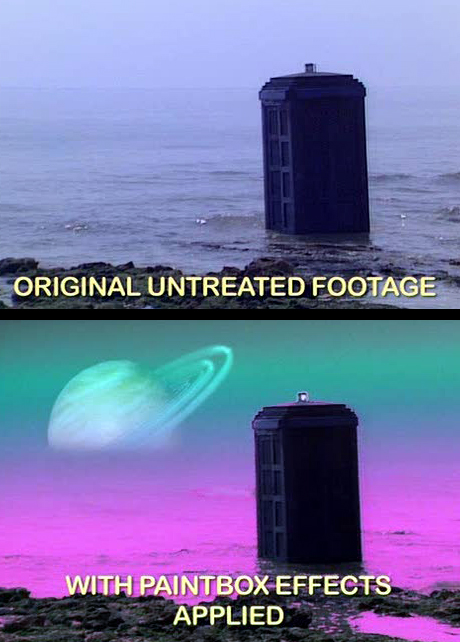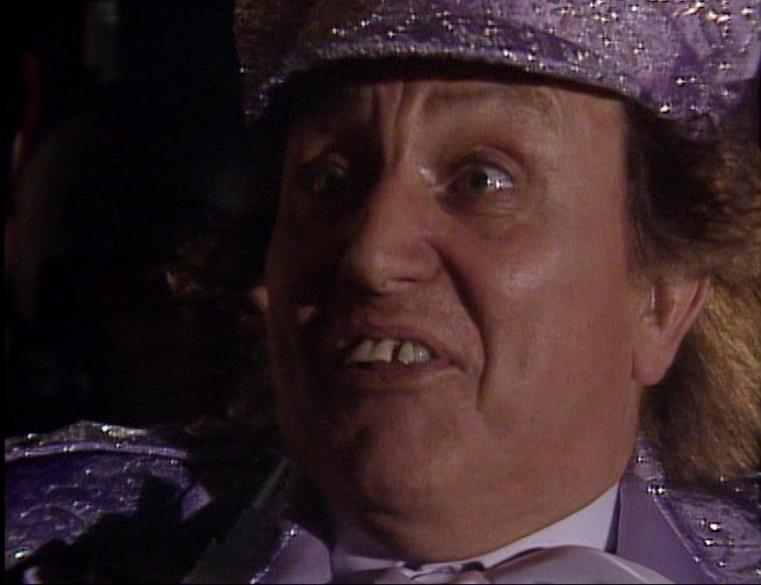Transmat:Doctor Who: Difference between revisions
No edit summary |
Eyacorkett (talk | contribs) mNo edit summary |
||
| (136 intermediate revisions by 8 users not shown) | |||
| Line 1: | Line 1: | ||
__NOTOC__ | __NOTOC__ | ||
{{template:transmat:{{PAGENAME}}}} | |||
<div id="tr-box-container" style="width:98%"> | |||
<div | <div id="tr-box-container" class="tr-box-cols" style=margin-top:40px> | ||
<div id="box-container" class="box-cols | <div class="tr-box one"> | ||
{{thead|The women who gave ''Doctor Who'' back to us}} | |||
<div class="box | [[file:JaneTranter.jpg|center|link=http://tardis.wikia.com/wiki/Transmat:Doctor_Who?file=David_Tennant_interviews_Doctor_Who_Producers_-_Doctor_Who_Confidential_-_BBC]] | ||
{{tcap|Click for video}} | |||
Think ''Doctor Who'' is just for boys? Don't you believe it. Not only was the show's [[Verity Lambert|very first producer]] a woman, but it would never have come back without the fierce advocacy of '''[[Jane Tranter]]''' and '''[[Julie Gardner]]'''. Considering her importance to ''Doctor Who'' it's somewhat ironic that Tranter's only on-screen ''credits'' are for ''[[Torchwood: Miracle Day]]''. But Gardner, her "partner in crime", is tied only with [[Russell T Davies]] as the most prolific producer in ''[[Doctor Who]]'' history. | |||
</div> | </div> | ||
<div class="tr-box two"> | |||
{{thead|Industrial action}} | |||
[[File:Paintbox.jpg|link=http://tardis.wikia.com/wiki/Transmat:Doctor_Who?file=BBC%2527s_Historic_Mainframe_Arrives%2521%2521_%2528Quantel_Paintbox_DPB_7000%2529_This_created_many_80s_programs%2521%2521]] | |||
{{tcap|Click for a video of a [[21st century]] geek as he takes delivery of one of the two Paintboxes used by the BBC in the 1980s}} | |||
The '''[[Quantel Paintbox]]''' was a graphics workstation that allowed ''[[Doctor Who]]'' to have a primitive form of [[colourist|colour grading]] in the [[1980s]]. To find out more about the "business of show", go to '''[[:category:production information]]''', where you can read about [[colour separation overlay]], [[low loader]]s, [[telerecording]]s, [[vidFIRE]], [[rostrum camera]]s, [[2" quad]] tape, [[Ealing Studios]] and tons more.</div> | |||
<div class="tr-box one"> | |||
{{thead|Surprising guest star}} | |||
{{surprising guest}} | |||
</div> | |||
<div class="tr-box two"> | |||
{{thead|Ex-Doctors never die, they just make audios}} | |||
The careers of the [[Fifth Doctor|Fifth]], [[Sixth Doctor|Sixth]], [[Seventh Doctor|Seventh]] and [[Eighth Doctor]]s are '''significantly''' longer [[Big Finish Doctor Who audio stories|in audio]] than on television. Check out their latest works at '''[[:category:{{CURRENTYEAR}} audio stories]]'''. | |||
</div> | |||
<div class="tr-box one"> | |||
{{thead|The relevance of comics}} | |||
Officially, only ''[[The Lodger (TV story)|The Lodger]]'' has been explicitly adapted from a comic strip — also called ''[[The Lodger (comic story)|The Lodger]]''. | |||
[[File:10MickeyFootball.jpg|center|link=http://tardis.wikia.com/wiki/Transmat:Doctor_Who?file=Craig_asks_The_Doctor_to_leave_-_Doctor_Who_-_BBC]] | |||
However, several stories have clearly taken material from comic strips — often those in ''[[Doctor Who Magazine]]''. ''[[The Shakespeare Code (TV story)|The Shakespeare Code]]'' contains a good amount of material from ''[[A Groatsworth of Wit (comic story)|A Groatsworth of Wit]]'', and the notion of the Doctor absorbing the [[time vortex]] in order to spare a [[companion]] was explored in both ''[[The Parting of the Ways (TV story)|The Parting of the Ways]]'' and ''[[The Flood (comic story)|The Flood]]''. | |||
</div> | |||
<div class="tr-box two"> | |||
{{thead|The first of the "money men"}} | |||
'''[[Donald Baverstock]]''' was the [[British Broadcasting Corporation|BBC]] executive who set the the wheels in motion that eventually led to the creation of ''[[Doctor Who]]''. Essentially the original commissioner of the programme, he hired [[Sydney Newman]] and later imposed a sense of financial responsibility upon [[producer]] [[Verity Lambert]]. | |||
But Baverstock wasn't the only '''[[:category:BBC executives|BBC executive]]''' to have a profound impact on the development of ''Doctor Who''. Make sure you read about [[Lorraine Heggessey]], [[Mark Thompson]], [[Danny Cohen]], [[George Entwistle]], [[Tony Hall]], [[Shaun Sutton]], [[Sydney Newman]] and others. </div> | |||
<div class="tr-box two"> | |||
{{thead|Things released on [[{{CURRENTDAY}} {{CURRENTMONTHNAME}} (releases)|{{CURRENTDAY}} {{CURRENTMONTHNAME}}]] }}{{:{{CURRENTDAY}} {{CURRENTMONTHNAME}} (releases)}} | |||
</div> | |||
<div class="tr-box one"> | |||
{{thead|Did you know…}} | |||
{{Doctor Who Wiki/DYK}} | |||
</div> | |||
<div class="tr-box three"> | |||
{{thead|[[{{CURRENTDAY}} {{CURRENTMONTHNAME}} (people)|{{CURRENTDAY}} {{CURRENTMONTHNAME}}]] births and deaths }}{{:{{CURRENTDAY}} {{CURRENTMONTHNAME}} (people)}} | |||
</div> | |||
{{#ifexpr: {{PAGESIZE:{{CURRENTDAY}} {{CURRENTMONTHNAME}} (production)|R}} < 440|| | |||
<div class="tr-box two"> | |||
{{thead|Production history for [[{{CURRENTDAY}} {{CURRENTMONTHNAME}} (production)|{{CURRENTDAY}} {{CURRENTMONTHNAME}}]] }}{{:{{CURRENTDAY}} {{CURRENTMONTHNAME}} (production)}} | |||
</div>}} | |||
</div> | |||
</div> | |||
{{reflist|2}} | |||
{{cache clearer}} | |||
Latest revision as of 08:24, 14 July 2024
Planet of the Dead was the first of the 2009 specials that ended David Tennant's tenure as the Doctor. It teamed the Tenth Doctor up with an aristocratic thief named Lady Christina De Souza for a one-off adventure that also heavily involved UNIT. Behind the scenes, it was important for a number of innovations, as it was the first episode to be filmed in HD, and the first to involve location filming in the Middle East. As of 2013, it was the only Doctor Who Easter special.
Think Doctor Who is just for boys? Don't you believe it. Not only was the show's very first producer a woman, but it would never have come back without the fierce advocacy of Jane Tranter and Julie Gardner. Considering her importance to Doctor Who it's somewhat ironic that Tranter's only on-screen credits are for Torchwood: Miracle Day. But Gardner, her "partner in crime", is tied only with Russell T Davies as the most prolific producer in Doctor Who history.
Though largely unknown to non-British audiences, Ken Dodd was a major star in the United Kingdom when cast to play the Tollmaster in the Seventh Doctor serial, Delta and the Bannermen. Find out more about the thousands of actors who have been on Doctor Who by exploring Doctor Who guest actors.
The careers of the Fifth, Sixth, Seventh and Eighth Doctors are significantly longer in audio than on television. Check out their latest works at category:2024 audio stories.
Officially, only The Lodger has been explicitly adapted from a comic strip — also called The Lodger.
However, several stories have clearly taken material from comic strips — often those in Doctor Who Magazine. The Shakespeare Code contains a good amount of material from A Groatsworth of Wit, and the notion of the Doctor absorbing the time vortex in order to spare a companion was explored in both The Parting of the Ways and The Flood.
Donald Baverstock was the BBC executive who set the the wheels in motion that eventually led to the creation of Doctor Who. Essentially the original commissioner of the programme, he hired Sydney Newman and later imposed a sense of financial responsibility upon producer Verity Lambert.
But Baverstock wasn't the only BBC executive to have a profound impact on the development of Doctor Who. Make sure you read about Lorraine Heggessey, Mark Thompson, Danny Cohen, George Entwistle, Tony Hall, Shaun Sutton, Sydney Newman and others.- 1965 - The fourth and final part of the TV Comic story The Ordeals of Demeter was published.
- 1969 - Part three of the TV Comic story U.F.O. was published.
- 1975
- Part four of Planet of Evil premiered on BBC1.
- Part six of the TV Comic story The Sinister Sea was published.
- 1979 - DWM 2 was published by Marvel Comics.
- 1980 - Part four of Meglos premiered on BBC1.
- 1984 - The novelisation of Inferno was published by Target Books.
- 1986 - Part three of Mindwarp premiered on BBC1.
- 1989 - Part three of Ghost Light premiered on BBC1.
- 1990 - The novelisation of Survival was published by Target Books.
- 2001
- The Scripts: Tom Baker 1974/5 was published by BBC Books.
- DWM 310 was published by Panini Comics.
- 2004 - The audio story The Last was released by Big Finish Productions.[1]
- 2006 - The Doctor Who: Battles in Time comic story Death Race Five Billion was published.
- 2007 - DWM 388 was published by Panini Comics.
- 2010 - Part one of The Vault of Secrets premiered on CBBC. Later, episode two of Sarah Jane's Alien Files premièred with it.
- 2011 - Part two of The Man Who Never Was premiered on CBBC, ending The Sarah Jane Adventures.
- 2012
- DWA 291 was published by Immediate Media Company London Limited.
- DWM 453 was published by Panini Comics.
- 2014 - Flatline premiered on BBC One.
- 2017
- The Lost Dimension #6, The Tenth Doctor Year Three #10, and Sin Eaters were published by Titan Comics.
- TCH 37 was published by Hachette Partworks.
- 2018
- DWM 531 was published by Panini Comics.
- Toby Hadoke's Who's Round 234 was released online.
- DWFC 135 was published by Eaglemoss Collections.
- 2019 - Iris Wildthyme and the Polythene Terror was published by Obverse Books.
- 2022 - Torchwood: SUV was released by Big Finish.
- ... that McCoy-era script editor, Andrew Cartmel, has written for the Torchwood franchise in the form of the prose story The Wrong Hands?
- ... that Manchester DI Patricia Menzies easily accepted the Sixth Doctor's time travelling life because she had seen Back to the Future? (AUDIO: The Condemned)
- ... that perigosto sticks were used by students at the Time Lord Academy to play games of four-dimensional juggling? (PROSE: Seeing I)
- ... that, despite being a relatively recent visitor to Earth, the First Doctor already knew much about Jewish and Christian traditions and holidays by the time he was travelling with Vicki? (PROSE: Byzantium!)
- ... that a highly evolved rovie — or Gallifreyan mouse — once tried to take over the Doctor's TARDIS? (AUDIO: No Place Like Home)
- 1926 - Actor Sheila Gill was born.[2]
- 1928 - Actor John Collin was born.[3]
- 1933 - Actor Edward Brayshaw was born.[4]
- 1939 - Actor Ian East was born.[5]
- 1961 - Costume Designer Ray Holman was born.[6]
- 1991 - Actor Joanna Vanderham was born.[7]
- 2005 - Actor John Hollis died.[8]
- 1963
- Studio filming for the very first Doctor Who episode took place at Lime Grove Studio D.
- Verity Lambert decided that designer Peter Brachacki was unsuitable for Doctor Who, and demanded a replacement. Barry Newbery and Raymond Cusick were considered, and got to work. Newbery's plans, however, were too costly for Donald Baverstock, who sent a memo to Donald Wilson in complaint.
- Director Christopher Barry received the first attempts at the Dalek voices from J. N. Shearme. Two different approaches arrived through Barry's letterbox: one using computer synthesis and the other using a vocoder. Barry indicated he was particularly interested in the vocoder approach, but no final decision was taken on this day.
- 1968 - Episode five of The Invasion was recorded at Lime Grove Studios D. (TCH 13)
- 1971 - Studio filming for Day of the Daleks took place at BBC Television Centre studio 8. (REF: Doctor Who The Handbook: The Third Doctor)
- 1977 - Studio filming for Underworld took place. (REF: Doctor Who The Handbook: The Fourth Doctor)
- 1979 - Location filming for Shada took place. (REF: Doctor Who The Handbook: The Fourth Doctor)
- 2012 - The Big Finish audio story Ghost in the Machine was recorded at the Moat Studios.
- 2014 - Big Finish announced the casting of Miranda Raison as the Sixth Doctor's companion Constance Clarke.
- 2017 - The Big Finish audio story Landbound was recorded at Ladbroke Audio.
- 2018 - Big Finish's audio anthology The Eighth of March was recorded at the Moat Studios.
- 2021
- Big Finish's Torchwood audio story Infidel Places was recorded at PRL Studios.
- Big Finish's audio anthology Shades of Fear was recorded at the Soundhouse.




